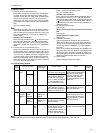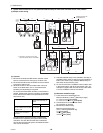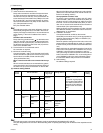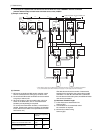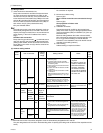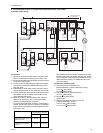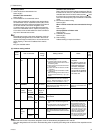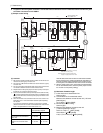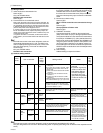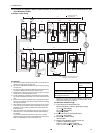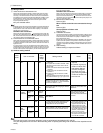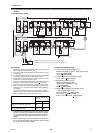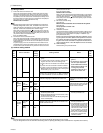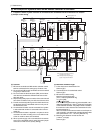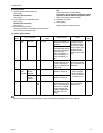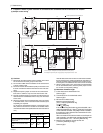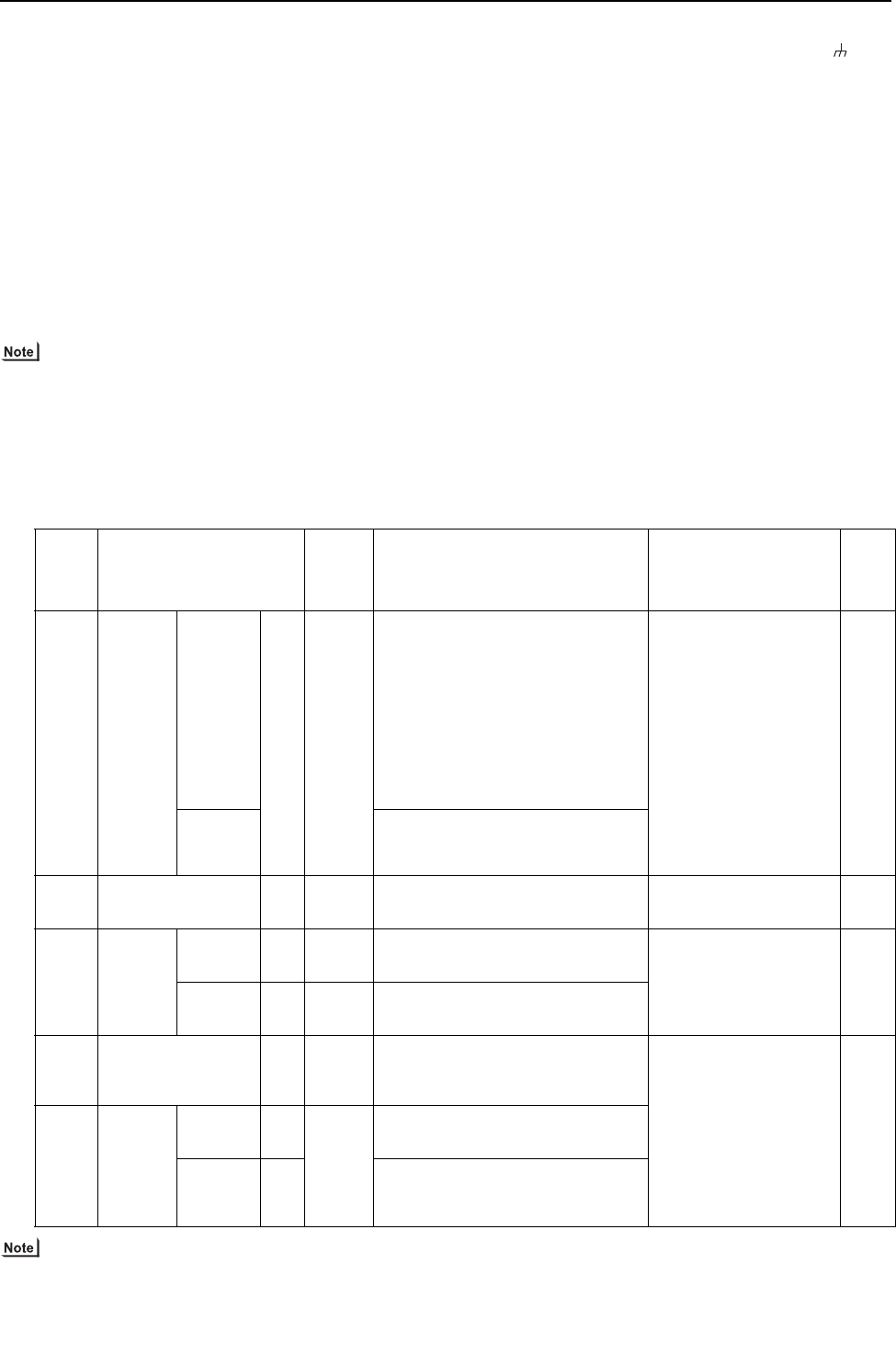
- 44 -
[ II Restrictions ]
GBHWE09080
(4) Wiring method
1) Indoor-heat source transmission line
Same as [5] 7.
Only use shielded cables.
Shielded cable connection
Same as [5] 7.
2) Transmission line for centralized control
Daisy-chain terminals A and B on the system controller, ter-
minals M1 and M2 on the terminal block for transmission line
for centralized control (TB7) on the heat source units (OC)
in different refrigerant circuits and on the heat source units
(OC and OS) in the same refrigerant circuit.
If a power supply unit is not connected to the transmission
line for centralized control, replace the power jumper con-
nector on the control board from CN41 to CN40 on only one
of the heat source units.
If a system controller is connected, set the central control
switch (SW2-1) on the control board of all heat source units
to "ON."
The heat source units in the same refrigerant circuit are
automatically designated as OC, OS1, and OS2 in the
order of capacity from large to small (if two or more units
have the same capacity, in the order of address from
small to large).
Only use shielded cables.
Shielded cable connection
Daisy-chain the S terminal of the terminal block (TB7) on
the system controller, OC, and OS with the shield of the
shielded cable. Short-circuit the earth terminal ( ) and
the S terminal on the terminal block (TB7) on the heat
source unit whose power jumper connector is mated with
CN40.
3) MA remote controller wiring
Same as [5] 6.
When 2 remote controllers are connected to the sys-
tem
Same as [5] 6.
Group operation of indoor units
Same as [5] 6.
4) LOSSNAY connection
Connect terminals M1 and M2 on the terminal block
(TB5) on the indoor unit (IC) to the appropriate terminals
on the terminal block for indoor-heat source transmission
line (TB5) on LOSSNAY (LC). (Non-polarized two-wire)
Indoor units must be interlocked with the LOSSNAY unit
using the system controller. (Refer to the operation man-
ual for the system controller for the setting method.) In-
terlock setting from the remote controller is required if the
ON/OFF remote controller alone or the LM adapter alone
is connected.
5) Switch setting
Address setting is required as follows.
(5) Address setting method
The heat source units in the same refrigerant circuit are automatically designated as OC and OS.
They are designated as OC and OS in the descending order of capacity (ascending order of address if the capacities are the
same).
Proce-
dures
Unit or controller
Ad-
dress
setting
range
Setting method Notes
Fac-
tory
set-
ting
1 Indoor
unit
Main unit IC 01 to
50
Assign the smallest address to the main unit
in the group.
In a system with a sub BC controller, make
the settings for the indoor units in the fol-
lowing order.
(i) Indoor unit to be connected to the main BC
controller
(ii) Indoor unit to be connected to sub BC
controller 1
(iii) Indoor unit to be connected to sub BC
controller 2
Make the settings for the indoor units in the
way that the formula "(i) < (ii) < (iii)" is true.
Port number setting is
required
To perform a group op-
eration of indoor units
that feature different
functions, designate
the indoor unit in the
group with the greatest
number of functions as
the main unit.
00
Sub unit
Assign sequential numbers starting with the
address of the main unit in the same group
+1. (Main unit address +1, main unit address
+2, main unit address +3, etc.)
2 LOSSNAY LC 01 to
50
Assign an arbitrary but unique address to
each of these units after assigning an address
to all indoor units.
None of these addresses may
overlap any of the indoor unit
addresses.
00
3MA
remote
controller
Main
remote con-
troller
MA
No set-
tings re-
quired.
-
Make the same indoor unit
group settings with the system
controller as the ones that
were made with the MA remote
controller.
Main
Sub
remote con-
troller
MA
Sub
remote
controller
Settings to be made with the Sub/
Main switch
4 Heat source unit
(Note)
OC
OS
51 to 100 Assign sequential address to the heat
source units in the same refrigerant circuit.
The heat source units are automatically
designated as OC and OS.(Note)
To set the address to 100,
set the rotary switches to 50.
If the addresses that is as-
signed to the main BC con-
troller overlaps any of the
addresses that are assigned
to the heat source units or to
the sub BC controller, use a
different, unused address
within the setting range.
The use of a sub BC control-
ler requires the connection
of a main BC controller.
00
5 Auxiliary
heat
source
unit
BCcon-
troller (Sub)
BS
51 to 100 Assign an address that equals the sum of the
smallest address of the indoor units that are
connected to the sub BC controller and 50.
BC control-
ler (Main)
BC OC (or OS if it exists) +1



